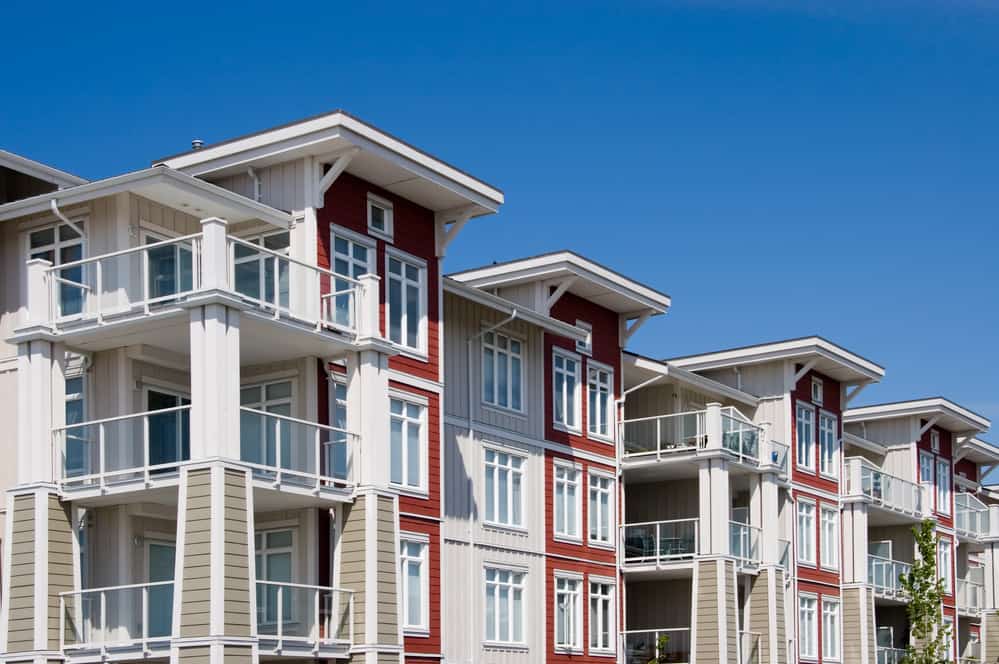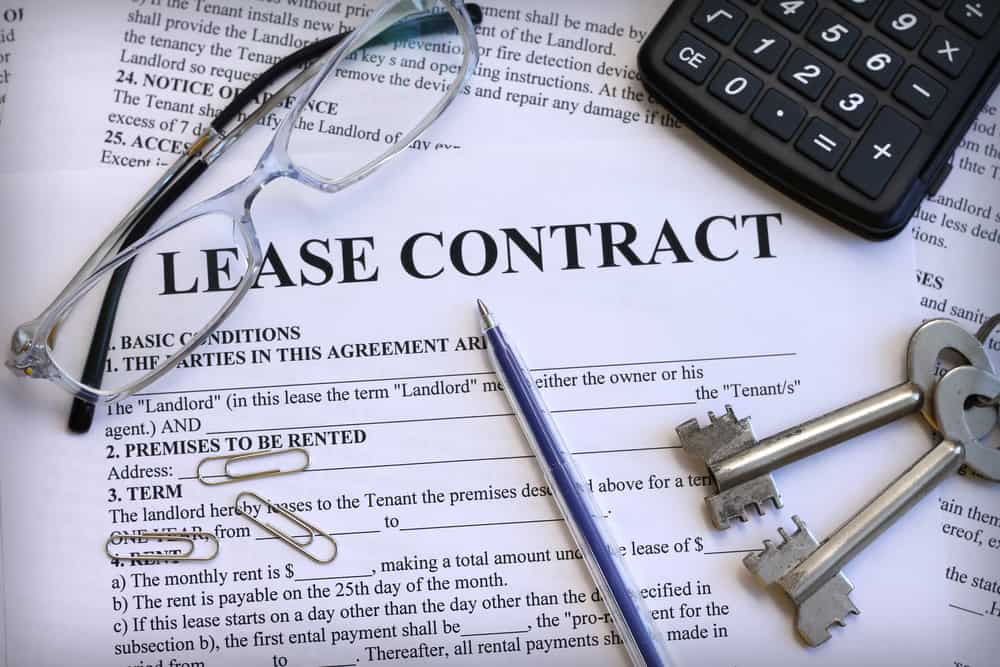Striking out on your own for the first time can be exciting, but the whole thing can be daunting. Today’s renters face a different housing world than their parents did at the same age. Almost one in four millennials say they expect to rent forever, according to research by Apartment List, an online apartment-rental company. A 2020 survey showed 40% of renters spend more than one-third of their income for housing. But with careful planning, you can remain financially on track with a roof over your head. Follow these guidelines to get a sweeter deal on your home, sweet home:
Before you find the perfect apartment:
Show that you have a steady job. Rental agencies and landlords want to know you have a regular source of income. Gather employment information as if you are filling out a job application: Show a work history and your current history of employment. If you are a freelancer, be prepared to show bank statements and a tax record of income.
Have good credit. Bad credit can not only keep you from getting a lease on a nice apartment, but it can also cost you higher rent and a larger security deposit. If your credit isn’t the greatest, do what you can to raise your credit score before you start looking; read our article about how to improve your credit. Don’t think you have to carry a balance on your credit card to improve your score. Five factors affect your FICO credit score: the amount you’ve borrowed as a percentage of your available credit; your payment history on loans or credit cards; the length of time you have had a payment history; how many credit lines you have open; and the variety of credit lines you hold.
Know what you need or want. Before you start searching for an apartment, decide where you want to live and what amenities you can’t live without. For example, do you want to be downtown where there’s a little more action or would you prefer a quieter place in the suburbs? Do you want to be close to work or is a longer drive not a real issue for you? Do you want a place with a swimming pool? A fitness center? Central heat and air conditioning? Do you need to have a washer and dryer in your apartment, or are you OK with on-site laundry facilities? Keep in mind that all of these amenities can add up, so make a list of the ones you absolutely have to have and a second list of those you want but can live without if necessary. Consider weighing some options. For instance, you might prefer to live close to work. But if you can find the perfect apartment in a suburb and the cost of an annual train or subway pass (plus travel time) is less of a financial burden, it might make the list. If you don’t have a vehicle and like to hit the restaurants every night, a downtown apartment might be worth the extra bucks.
Expect more expenses. When you rent an apartment, you are typically only renting the space. Utilities, cable TV and even a parking space or a storage unit can be a separate expense. Do some research to find a ballpark figure on expenses. Also, you will be expected to pay a deposit and/or last month’s rent along with that first month’s payment.
Hit the keyboard, then the pavement. Once you’ve decided what area you want to be in and what amenities are must-haves, look online, combining your proposed price range and preferred location. Look for properties that have the amenities you need (use your list of wants to help you further narrow your search). Then go look at several of them in person. In many locations, real estate agents prefer that you have a rental application filled out before you view a property.
Be kind. People are more likely to give a better deal to someone they like, so while you’re negotiating, be courteous and respectful at all times. Manners go a long way to connect with the agent or landlord. 
You found the perfect spot! Now what?
That ideal apartment tugged at your heart. Is this a done deal? Not necessarily. You might be able to negotiate a few items and save yourself some hassle as well as a few dollars. Housing is usually the largest monthly bill we pay. Rental contracts should be viewed as any other contract: Review carefully, clear up any phrases or clauses that are hard to understand, and negotiate before signing the final lease.
Here are some items that could be negotiable:
Monthly rent. Negotiate rents unless the prices are below similar rentals in the area or the properties are in competitive markets. Getting a $2,000 per month rent payment down to $1,950 doesn’t seem worth the hassle, until you do the math. That equals $600 per year in savings.
Check out comparable rents in the area so you understand how much bargaining power you might have. Tell the landlord that you really like the apartment but think the price is too high for your comfort. Then quote the landlord a lower price than he or she would generally accept. For that $2,000 apartment, you might offer $1,800 per month.The landlord will likely counter with a number lower than $2,000. Then you and the landlord might compromise on rent prices in the middle.
If the landlord won’t budge on the monthly rent amount, ask him to pick up the tab for one of the utilities or throw in a new appliance or fixture (if the ones in the apartment are dated), window coverings, or a parking spot (sometimes there are extra spots that renters can get by asking). Often, you can get the rent lowered by signing a longer lease for, say, two years rather than one.
You could walk away from the deal if you feel the price is too high. But make sure you keep those bridges open — be pleasant and ask landlords to keep your name and contact information if the rental unit becomes available or if they don’t find a tenant. The landlord may then be more willing to take on a renter who appreciates the property.
Deposits and other fees. Most landlords require some type of security deposit to protect themselves against property damage. If you have pets, the landlord may require a pet deposit or monthly pet rent. Both of these amounts may be negotiable. Is your pet fully grown and housebroken? Has your pet achieved an obedience degree or attended training to ensure he is a well-mannered doggy citizen? Attach the certificate to the application. If the landlord still doesn’t seem amenable to alterations, ask if the landlord might be willing to meet your pet. Another negotiation tactic might be to ask if the deposit can be in monthly installments over a few months.
There might be other fees for things such as late rent payments, bounced checks, early termination of the lease and more. Read the lease carefully, and see what these fees are and whether they seem reasonable; if not, talk to the landlord about lowering them. It’s also important to look at the timing of fees; if a landlord imposes a late fee when you pay rent a day or two late, for example, you may want to ask for that time period to be extended. Or ask if the monthly rent payment could be paid in two payments that will coincide with your paycheck.
Customizing the apartment. Many leases state that a renter cannot alter the home by doing work like painting the walls, putting up moldings or adding a tile backsplash. Often, renters can get landlords to acquiesce on home alterations, especially if they agree to put a clause in the lease stating they can make alterations to the apartment with prior consent from the landlord and/or will return the apartment to its original condition upon move-out. This is especially true of painting the walls, but landlords may also be amenable to more substantial changes provided you can show that it would help the look and feel of the home. Just remember, don’t make too many costly improvements; you don’t own the unit and can’t recoup the costs. Learn to love the apartment and all its little quirks. Find ways to add your touch without compromising the lease — if you are allowed to hang things on walls but not paint, a wall tapestry or large poster will bring in color and individuality to the room.
Privacy. Look at the lease and see how much notice the landlord has to give a tenant before entering the apartment. Many tenants want a few days’ notice before a landlord comes into their place, but most leases don’t dictate that the landlord has to give notice. Often a lease will read “reasonable” notice. Ask what this means to the landlord. Some assume it is 24 hours notice, and others will come on very short notice. This rule, though it may not seem important right now, may be especially important when a landlord must show the apartment to prospective tenants. (Note that landlords are typically allowed to enter an apartment without any notice in the event of an emergency). Make sure you are familiar with the lease guidelines.
Other policies. It’s important to read your entire lease and look for any extra policies before signing anything. Some of the more common policies that landlords slip into leases are: subletting restrictions; using an apartment to run a business (if you freelance or work from home in some way, you must disclose this to your prospective landlord); guests and length of guests’ stays; and party guidelines. If subletting or running a business is important to you, you should try to negotiate these terms. If landlords limit the number of guests you can have and you think you will have more than the allotted number occasionally, this can likely be negotiated.
Before signing:
Who is the landlord? The landlord or rental agent will check you out to make sure you are offering truthful information. You have the right to do the same with your landlord or with the property. Search the internet for information on both, and dig a little deeper on anything that seems sketchy. Search public records to see if the landlord has any lien issues or other problems, and look for companies or agencies on the Better Business Bureau site.
Is the property safe? Check police reports to see if there have been problems at the property; crime reports are often available online. You would rather know about a troublesome neighbor before you sign a lease. Check doorknobs, locks and window latches, and ask that any broken or faulty locks and latches be repaired before your move-in date. Make sure the locks and keys have been changed since the last renters have moved out; if not, ask that this clause be included in your lease.
Rent stabilization. If you are moving into a rent-stabilized property, make sure the rider is attached to the lease.
Make sure every negotiation or change is in writing. Check your lease before signing to make sure any agreed-upon changes are included. Get receipts and make copies of the signed lease, and file it where you can easily find it.
Take pictures. Ask for a final walk-through of the apartment before signing the lease agreement. Look for any damage, carpet wear, etc. Take pictures of these findings and pictures of the appliances that are included with the apartment. Print copies to be attached to the lease agreement. This seems unimportant, but when you are at the end of the lease you won’t be arguing over whether you made that stain on the carpet or if the refrigerator has been switched.
For more related articles:
- Buy a house with 5% or less down payment
- 5 Tips for getting your security deposit back
- House-hacking: eliminate housing expense using other people’s money
- 7 ways to save without downsizing your lifestyle
- How to create a simple monthly budget


If you will be paying homeowner’s association fees, make sure you know what they include and whether the fees are likely to go up.